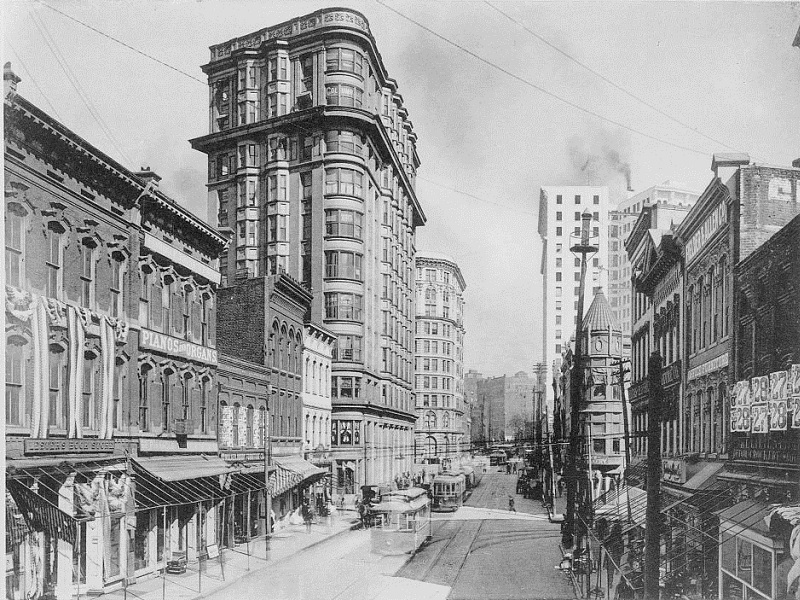Early Atlanta: Founding & Railroads
Atlanta’s history dates back to 1836 when it was the first major American city to be founded away from a major body of navigable water. It’s original name of “Terminus” was bestowed upon it as it was the place of the zero mile marker where the Western & Atlantic Railroad and Georgia Railroad intersected. The settlement we know today as the city of Atlanta grew entirely to support this railroad junction. By 1839 permanent homes and stores were built to support the budding laborer settlement. By the mid 1840’s rail lines converged here from four different directions leading Atlanta to become the major rail hub for the entire South-Eastern United States.
Civil War
The American Civil War saw Atlanta’s further rise as a primary distribution hub for supplies and commodities across the entirety of the Confederacy. Untold hundreds of thousands of Confederate soldiers were shuttled through Atlanta on its railways during this time. Such was its importance that late in the war General Ulysses S. Grant of the Union Army tasked one of his most trusted lieutenants, General William Sherman, with burning the city to the ground in 1864. The entirety of the city's assets save hospitals and churches were burned to the ground. One of the nation’s best Civil War museums can be found in Buckhead and does an exceptional job depicting this period in Atlanta’s history.
Post War - Reconstruction
Following the war Atlanta’s population grew rapidly. Manufacturing returned, and the city rebuilt its railways maintaining its status as THE railway hub for the Southern US. The late 1880’s saw one of America’s most iconic brands, the Coca-Cola company, being founded right here in downtown Atlanta. The electric streetcar came to Atlanta around this time and contributed largely to the suburban expansion and population growth in places like Decatur, Virginia Highland, Inman Park, and Druid Hills by Emory University. Around this same time many of Atlanta’s famous HBCU’s, Morehouse, Spelman, and Clark Atlanta University were founded south-west of downtown.
By the early 20th century, despite the intention of oppressive Jim Crow laws, a vibrant African American middle class and upper class had been established. Such was the success of these communities that “Sweet” Auburn Avenue was dubbed the most prosperous African-American community in the nation.
20th Century Atlanta
By the 1950’s this population began migrating into city neighborhoods where they had been previously excluded. Around this time an expansive freeway system was developed and saw further expansion of Atlanta’s suburbs out to places such as Alpharetta, Peachtree Corners, and Johns Creek.
Atlanta became a focal point during the Civil Rights Movement with Dr. Martin Luther King, Jr. calling the city home. Desegregation saw major changes to the city with slums raised and major housing projects being developed. By the mid-1960s several major suburban shopping malls had been opened cementing Atlanta’s freeway culture. The MARTA transit system was built during this time further supporting expansion in the suburbs. By the early 1990’s much of Atlanta’s core had deteriorated with commerce focused on the suburbs. Such was this decline that Atlanta saw a population decline of 21% over a two decade period.
The 1996 Summer Olympics saw major investment in Atlanta, with existing infrastructure being updated and new facilities built. This infusion of capital jumpstarted a net migration into the city’s core. Over the subsequent 20 years Atlanta has seen it’s star ascend as the major city of the Southern United States.
21st Century Atlanta
By the turn of the century Atlanta’s airport became the busiest in the world. The first two decades of the 2000s have seen a thriving ethnically diverse city see massive net inbound migration. Atlanta today is amongst the nation’s fastest growing major cities, leading a major growth across the entire South from NE regions. Its relatively affordable housing and thriving economy have become a major draw for people looking for warmer climes and a lower cost of living. Such is its growth that estimates project a population in excess of 8.5 million in metro Atlanta by 2050.

